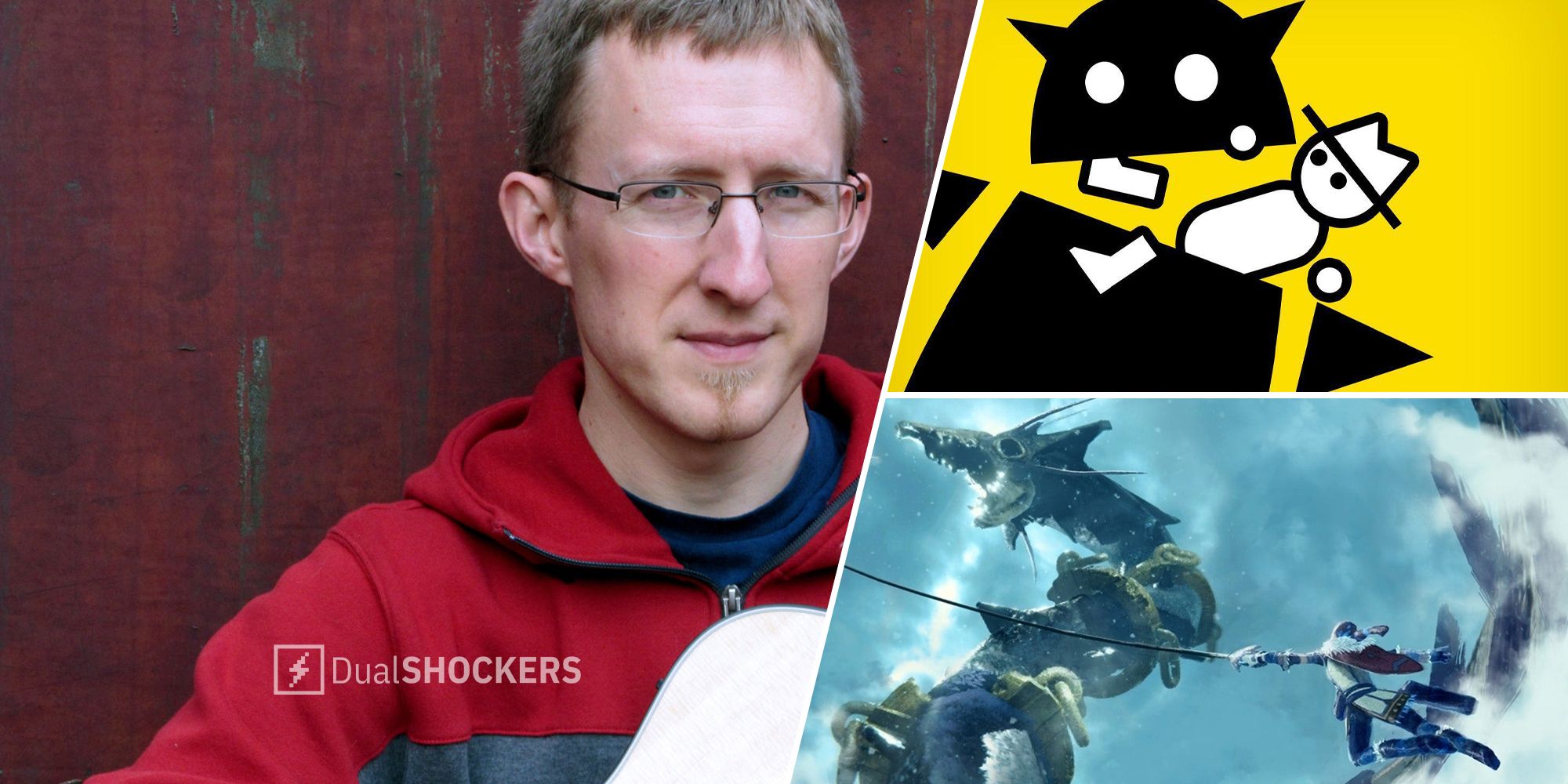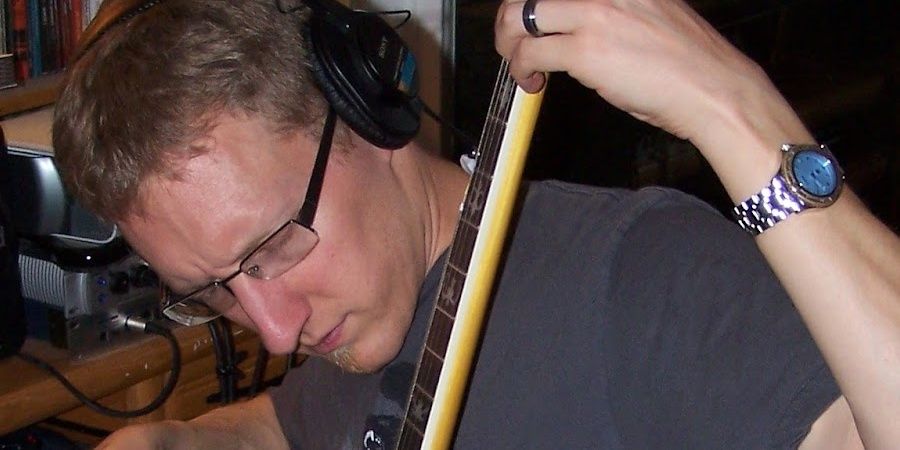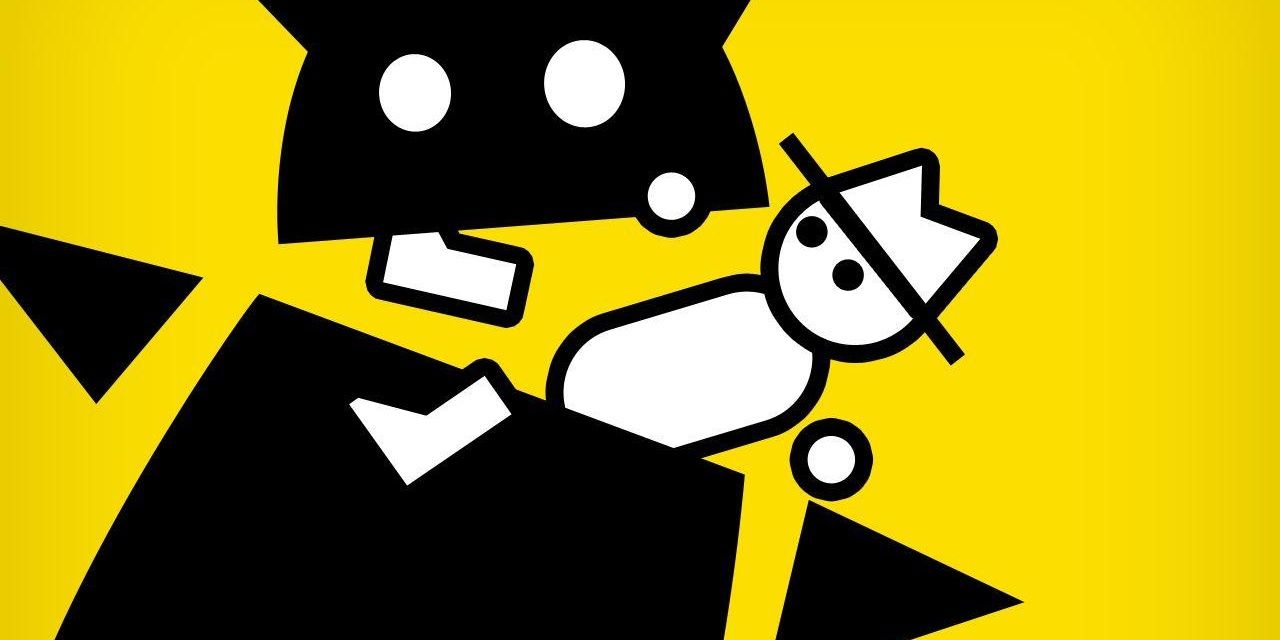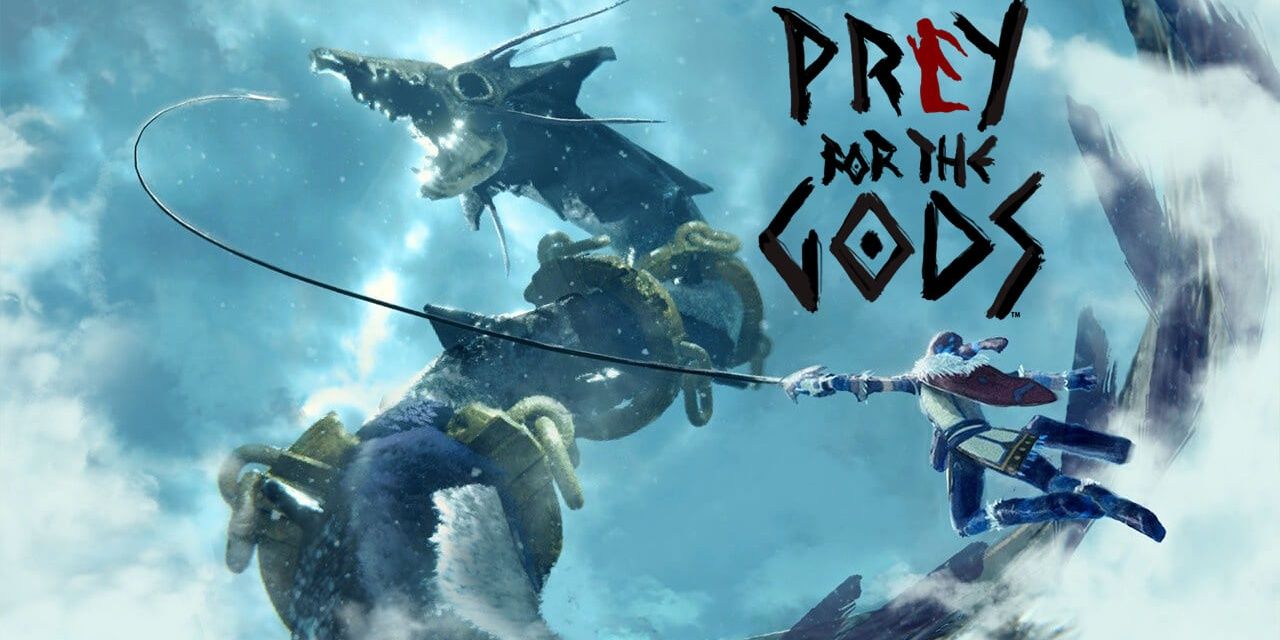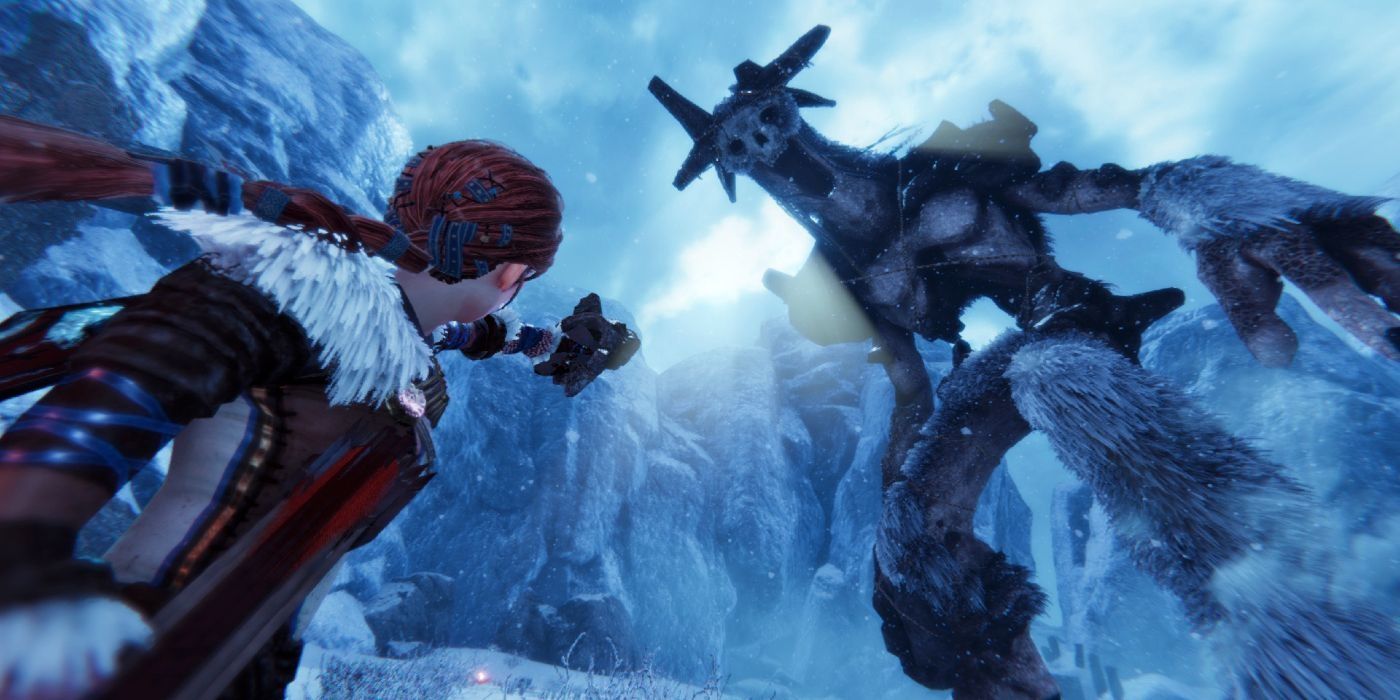You might not know the name Ian Dorsch, but you’ve undoubtedly heard the award-winning music he’s known for. From composing some of the most iconic intro tunes in online content for iconic series, like Zero Punctuation and Unskippable, to stringing the epic music of Praey For The Gods, Dorsch has achieved what many of us could only dream of. I had the privilege of sitting down with him to discuss his journey and what advice he had to share for other aspiring creators along the way.
“I feel like a lot of musicians come from a musical family,” Dorsch recalls. “My dad used to just put on LPs, and I’d sit there in front of his big old rectilinear speakers and just soak up Dire Straits, Stravinsky or whatever he was listening to; but it took me a long time to comprehend the possibility that I could do that and become a musician.”
With his father’s at-home studio and an open offer of support, Dorsch’s musical journey began humbly in the 90s. Like his parents before him, Dorsch fell in love with performing. “When I was about 19, I picked up the guitar. At that point, I was looking into music schools – my career goal to become a rock star.” Yet the course he’d set for himself couldn’t be farther from where he’d end up: classical music.
If you close yourself off to those things, you miss all the potential gems that are out there. So I really try to get out there and expose myself to new styles now.
“I ended up in a classical vocal music program and fell in love with it. I was a choir nerd in high school. And so while I was playing with bands, trying to do something in the rock and metal worlds, I was also getting a really thorough grounding as a classical singer and as a choral director. When I graduated, I had this really eclectic skill set where back then it was difficult for most have all those diverse experiences.” Dorsch calls the contrasting influences “extremely fortunate”, helping him grow as a person, overcoming adolescence through his self-expression.
“Music saved my life a few times. So I feel a great debt to it and to share it with other people – to evangelize for it. A lot of lights came on at once for me when I went to music school. What I learned there was to be curious and to keep my mind open.” At the time, he recalls music journalism turning snobbishly toxic, whereas he learned ot embrace all manner of genres. “If you close yourself off to those things, you miss all the potential gems that are out there. So I really try to get out there and expose myself to new styles now.”
After honing his skills in college, Dorsch would find the perfect companion in his singer/composer wife, Joy, who’d later go on to work with Ian on Gears of War 3, among other projects. At the time though, they were starving artists (well, at least until an unexpected pregnancy pushed Dorsch to seek out steady work to support their growing family). “Around that time I was a voracious consumer of any kind of like music trade journalism that I could get my hands on. I saw some work in Electronic Musician about writing music for video games, and was like ‘Hey, this is a career path.'”
The game in question? Grim Fandango.
LucasArts’ swan song adventure game blew Dorsch’s mind. “I’d just never experienced anything quite like it,” he recalls. “Grim Fandango was beyond anything that I could conceive of for video game music. At the same time, the first very Halo had just come out, and I love that soundtrack – I really identified with it musically. I was like, ‘Dude, I could do this, it has all the choral elements!'”
As he dug deeper, Dorsch discovered all his favorite music genres in everything from Icewind Dale to Command & Conquer. A friend of his started a game audio business, helping Dorsch get his foot in the door with the Game Audio Network Guild. The guild was arguably one of the first advocacy organizations in the games industry, representing on behalf of composers and sound designers. “Back then they had all these ambitions. It was going to be a union, a health plan available to members, mentorships, and all this kind of stuff. This was where I needed to be.”
Surrounded by talented, aspiring peers, Dorsch began making his way into the gaming space, but life began to get in the way. “I’d reached a point where my daughter was almost a year old, and I was trying to balance doing this with working at a church music gig and just taking music directing jobs that I could land in the Bellingham area,” he says. “It was too much for the family unit to juggle, and Joy and I just weren’t seeing each other.” So in 2004, Dorsch made the decision to get a day job, moving the family to Aberdeen, Washington, where he grew up.
At first, he took a “cold turkey” music-free day job as a pump manufacturer for an engineering department. The stress of bringing money to the table was gone, but the yearning to continue composing and performing was undeniable. “I started practicing guitar in a more serious way, and I ended up getting involved with the Gamers With Jobs forums, which was fairly new back in those days.” It was here that Dorsch would crucially meet another aspiring creator, and future co-founder of The Escapist, Russ Pitts.
At the time, Pitts and a few other members of the forum were starting a podcast, and Dorsch offered to throw some music their way to see if his compositions would be a good fit. “I went home and just like hit the woodshed and delivered my best swing at a theme song for the podcast. And Russ was like, ‘It’s a ten!'” Though the podcast wasn’t making money, it granted a creative outlet for Dorsch. “I rediscovered my joy for making all kinds of weird music. Russ would ask me for, Hey, can you, within the next 2 hours, crank out something that sounds like ‘Don’t Fear the Reaper?’ or ‘Can you do something that sounds like the Beatles?’ I would just be like, ‘All right, why not?’ It was a fun challenge.”
Pitts went on to help kick off The Escapist, the digital magazine which quickly pivoted to a website. Not long after, the site courted one of the grumpiest voices in gaming, Ben ‘Yahtzee’ Crowshaw, to start the now-famous Zero Punctuation web series.
Initially relying on old music clips, which would run copyright risks, it was finally decided to pivot the series’ music in a new direction. “Russ was like, ‘Hey, I feel like we need an original theme song for this. You want to take a crack at it?’ I was like, ‘Hell yeah, I do!'” The same chaotic rhythm of guitar riffs, as biting as the game critic they accompany, still play with each episode of the series to date. Dorsch would quickly become The Escapist’s music coordinator, working as an in-house composer on dozens of web-series.
Sometimes your first idea is the best, but not often, and it’s good to have a system in place to challenge you to move beyond your first impulses and try different things.
Dorsch remains proud of the Zero Punctuation theme, as well as one of his more unconventional pieces, “There’s a special place in my heart for the Doomsday Arcade theme.” Where Zero Punctuation was pure guitar riffs, Doomsday mixes Mic Gordon-esque heavy beats with electronic elements, “which is ironic, as I was never a huge fan of chiptune stuff.” Dorsch attributes one of the key tenets to a great musical intro being iteration. “Go back and forth with your collaborators. The version of the Zero Punctuation theme that we landed on was like, the third or fourth version,” he tells me. “Sometimes your first idea is the best, but not often, and it’s good to have a system in place to challenge you to move beyond your first impulses and try different things. It’s about a good melody, an audible hook people latch on to. Something that gives the listener a doorway in.”
Though he’d already made a name for himself on the web, that itch to compose for games never went away. Fortunately, he met the future creative director of Praey for the Gods, Brian Parnell. “Brian was in the music program at Western Washington University back in the day when my wife Joy and I were there,” Dorsh remembers. “We all sang in the concert choir together. In fact, he sang in my tenor section when I was the section leader.”
Parnell would end up going into the game industry a long time before Dorsch, working on titles like Titan Quest game and Rock Band. Meanwhile, Dorsch started small, contributing to projects during the early days of the indie games scene. Together, the Dorsches worked as assistant composers for Steven Jablonsky on the Gears of War 3 soundtrack. It wasn’t long after that, that Ian and Joy Dorsch would cross paths again with Parnell.
Their first attempt at an independent project fizzled out, but then roughly seven years ago, Parnell contacted Dorsch again, asking if he wanted to work on a new project called Praey for the Gods. Dorsch’s answer was an emphatic ‘yes.’ “We worked on the first teaser trailer for Praey for the Gods. They already had some playable stuff back then, even though they all still had day jobs at the time. So we put out a teaser trailer in October of I think 2016, and it got a lot of attention.” So much attention, in fact, that Bethesda leveled one of their storied, absurd lawsuits over the game’s original name of Prey for the Gods, as seen in the reveal trailer below. Adding an extra A would pacify the larger company, and Praey would continue to impress as the project gained steam
Thanks to Parnell and the Dorschs’ mutually firm grasp on music, the project would be another dream collaboration. Joy and Ian would each sing in the game’s Kickstarter trailer, providing vocals based on Old Norse text. They would also get to work with the choir from their alma mater, with a brief clip recorded (see below) during their sessions in the lead up to the game’s Kickstarter.
“If you go back and watch our second Kickstarter trailer, the vocal stuff in there only could come about because Brian said ‘We need joy here. We’ve got to have more choral vibes over here,’ Dorsch tells me. “It was really important to him, and it inspired me to dig deeper, to come up with cool ideas that could fit the game.” That thrilling challenge encompasses the production of Praey in Dorsch’s mind, getting to reunite with old friends to put together a labor of love. “I couldn’t be more grateful for the opportunity to work on that game with him.”
The experience was a wonderful contrast from his time contributing to AAA games, which Dorsch describes as, “working for the guy who was working for the guy who was working for the guy who was working for the team of producers.” “With indie games, you’re answering to maybe two people, and you’re working directly with the person who’s making those creative decisions. So I can pitch ideas that I think are cool, and they can say ‘yes’ or ‘no’ without ten different producers to sign off on it. I can really try to challenge myself to find an angle that I can get excited about and then see if it clicks.”
Though he isn’t averse to the prospect of working on a large, AAA production again, he says that the process of working on small projects is far more “personally rewarding, because you have the ability to put more creative skin in the game,” letting him pivot however he needs. That flexibility also permitted him to contribute here and there to the sound design, working in concert with Lippe when they needed a musician’s flourish to aspects of the game, such as the totems players find around the map.
When I asked him what he wished more players knew about composing, he had quite the answer: “I think in general, it’s valuable for players to know, especially with independent projects, that if something doesn’t work the way that you wanted to or expect it to, there’s generally a real good technical reason for it. At first, I’d be like, ‘Well, why didn’t they just do this?’ The reason for that is always that somebody’s got to build that. Sometimes it works the way you expect it to, and sometimes you crack open a whole other gigantic can of worms.”
Dorsh has also learned plenty from Praey’s own struggles mixing together music for key scenes involving the game’s lore. “We were working on music for these almost up until we shipped, trying to layer music with a voiceover where Dan took some of my choral recordings, processed them, reversed them, and had them layered in there with the voices,” he tells me. “It just seemed too busy, but we couldn’t figure out how to distill it. We were trying to solve this problem so close to the finish line – it wasn’t clear to any of us how all the finished pieces were going to fit together until they were all actually in the game.”
Praey has gone on to become a beloved cult classic since its final release in 2021, capturing the energy of an animated film paired with the intense combat of Shadow of the Colossus. The Dorschs continue to contribute to a variety of projects in the gaming scene, with Ian’s most recent being Airborn Studios’ UE5 Showcase, setting a score to the art production house’s talents in a real-time showpiece.
Dorsch continues to compose stunning scores in Aberdeen, Washington, and can be followed on Twitter @IanDorsch.

